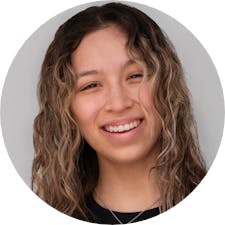This fall, government professors Russell Muirhead, Herschel Nachlis and William Wohlforth are teaching GOVT 30.17, “The 2024 Election,” to educate students on the Nov. 5 election and its implications on foreign and domestic policy, according to Muirhead. The class will host 10 guest speakers throughout the term, including former Vice President Mike Pence, lawyer and Brandeis University professor Anita Hill and Sen. John Fetterman (D-PA).
Muirhead said he and his co-instructors came up with the idea for the class together. They wanted to teach students about what he said will be an “extraordinary” moment in American politics.
“This feels, as did 2020, … like an extraordinary [election] — like the very definition of America is, in part, what’s at stake,” Muirhead said. “This election gets to the foundations of what America is.”
The course is divided into three segments, each of which are three weeks long and taught by a different professor, depending on their expertise, Nachlis said. The first segment, taught by Muirhead, focuses on American constitutionalism, democratic theory and political philosophy. Wohlforth will then follow with his segment on U.S. foreign policy before the class concludes with Nachlis’s coverage of U.S. domestic policy.
“In a course like this, the students get to sort of exploit those elements of the professor’s portfolio of knowledge that are most relevant to the specific course,” Wohlforth said.
The first guest speaker, Sherrilyn Ifill, attended the class on Sept. 24 before delivering a public talk on campus the same day. Two days later, the class opened by going over a class-wide poll on the upcoming election with Bill Kristol, former chief of staff to Vice President Dan Quayle. Kristol, like Ifill, then delivered a public talk in Filene Auditorium.
Of the 76 enrolled students, 73 participated in the poll. When asked who they wanted to win, 90% voted in favor of Vice President Kamala Harris, while the remaining 10% supported former President Donald Trump.
When students were asked about who they thought would win, 82% voted in favor of Harris and the remaining 18% in favor of Trump.
“As someone who is for Harris, the 82 [to] 18 split is too optimistic,” Kristol said.
Their predictions should be closer to 55% for Harris and 45% for Trump, he noted.
As part of the poll, students also identified the areas of policy they are most concerned about over the next four years, including reproductive rights, guns, immigration and foreign policy.
The Rockefeller Center for Public Policy is hosting the class’s speaker series. The lectures — which will feature all of the speakers from GOVT 30.17 — are free and open to all Dartmouth students and members of the public, though the course’s 76 students will be guaranteed admission. The enrolled students will also be able to speak with the guests as a group after the class.
Margaret Edmonds ’27, who is enrolled in the course, said she was able to speak to Ifill after she visited the class and found her “super insightful.”
“It’s special that, in a class, we’re able to converse with such powerful experts in the field of politics,” Edmonds said.
In order to provide students with a comprehensive understanding of today’s polarized political climate, the three professors invited guest speakers with a wide range of ideologies, Wohlforth said. The goal is to facilitate conversation across the political aisle.
“I think it’s really important for everyone to understand why smart people of good will, with whom we might not see eye to eye, hold the policy and political positions they do and find aspects of life meaningful in ways we may not,” Nachlis said.
Edmonds said it was “really special” to take a class taught by “three professors who all have different ideological views and different areas of expertise.”
Victoria Cosmo ’28, who is taking the course, said the class has created a “safe space” for talking about political topics that can often be “intimidating.” These discussions have helped her and her classmates understand their “roles as citizens,” she said.
“We’re at a point politically where a lot of people are feeling this need to be engaged, [but] they don’t really know how to go about it,” Cosmo said. “It feels really good to be in a course that … tells you how to think critically when it comes to voting and when it comes to looking through candidates.”
In an email statement to The Dartmouth, Phillip Shim ’27 wrote that he is “really enjoying” the class despite not being “super into the more complex details of American government.”
“All three professors make a really strong effort to contextualize and critically examine the structures which underpin the American political system,” he wrote. “They’re also incredibly cognizant of creating a culture where minority political views can be freely expressed, and sensitive or controversial opinions are allowed to be articulated and debated.”

Alesandra Gonzales is a reporter, photographer, and videographer for The Dartmouth from south Texas, majoring in psychology with a minor in film. Outside of The D, she likes to workout, watch The Ranch, and do EMS work. She is a licensed EMT in three states.




